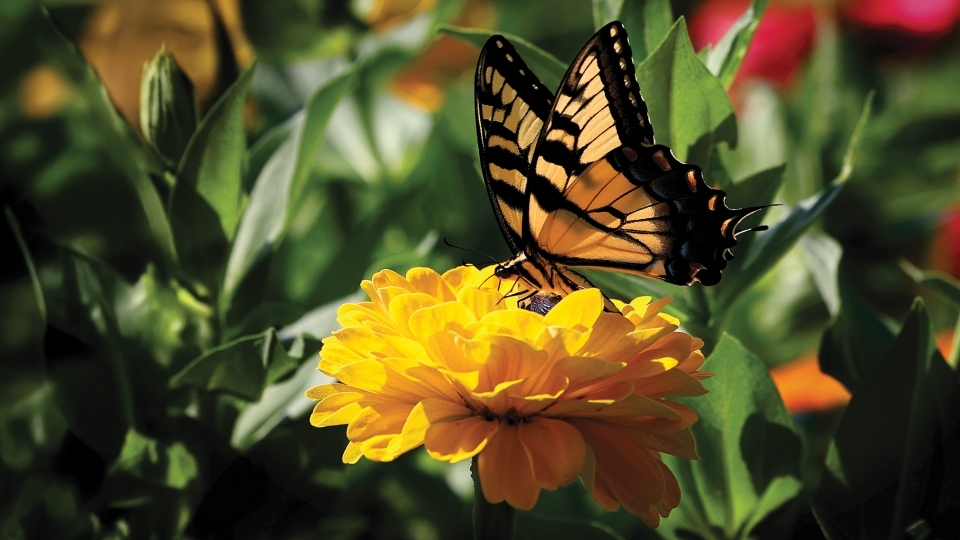Garden of Earthly Beelights Create a waystation in your yard for nature’s busiest bodies.
September 9, 2025
- Author
- Mary Elizabeth DeAngelis

Buzzing around and sipping nectar on a sunny day might seem easy, but pollinators carry a heavy load. Offering them a tempting place to eat helps the human and animal kingdoms alike.
Native plants feed insects like butterflies, moths and bees, which pollinate crops, and in turn feed other wildlife like birds, reptiles and amphibians. Students and staff planted and now tend a pollinator garden on campus. If you’re thinking of starting one, Cameron Clark ’15, Davidson’s sustainability coordinator for student programs, has these tips:

Consider your priorities. Do you want to spend time taking care of your garden? Are you a huge bug nerd, or an aspiring birder? Does a vase of fresh cut flowers make your day? Or are you hoping to switch out your traditional landscaping for more wildlife-friendly options with as little upkeep as possible? At my house, the name of the game is low-maintenance, durable native plants that can make it through the summer even if the gardener forgets about them for a while.
This article was originally published in the Spring/Summer 2025 print issue of the Davidson Journal Magazine; for more, please see the Davidson Journal section of our website.



